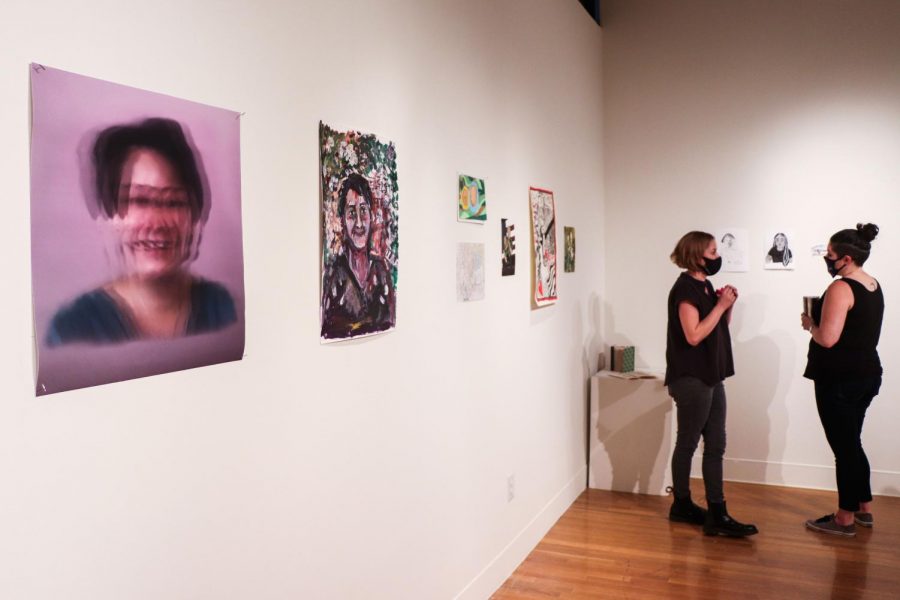Cancer institute partners with UT-Austin art class for health-related art show
October 5, 2021
The UT art department partnered with Livestrong Cancer Institutes to produce an art show for a course focused on the intersection of art and healthcare.
The show features portraits of cancer patients, caregivers and clinical staff created by students as part of the inaugural spring 2021 Aesthetics of Health course. While the students made portraits of the guests over a Zoom call, the subjects told their stories. Student art has been on exhibition at the Visual Arts Center since Sept. 24 and will remain on display until Oct. 9.
Robin Richardson, assistant director of care delivery transformation & community development at the Livestrong Cancer Institute, said while the students’ artistic abilities are phenomenal, the connection between the students and guests is the touching part of the process.
“Some of those works that you saw at the gallery are the things that they created in 45 minutes or 60 minutes,” Richardson said. “(The students) all showed those pieces to the patient after they told their story. And so it was this shared vulnerability.”
Studio art senior JJ Barrett, who took the class, said the course can help break the stigma of mental health and therapy because guests are able to open up to students via art.
“It’s gonna be a really big thing for the future,” Barrett said. “This is definitely a sub-genre that’s going to move off (of) … art therapy. I feel like this class is kind of bridging that gap.”
The Aesthetics of Health professor Megan Hildebrandt said Zoom made it easier for guests to tell their stories and created a mutual sharing space between students and guests, whereas in-person meetings put the attention just on the storyteller. The Zoom format also accommodated immunocompromised individuals who couldn’t meet with students in person, Hildebrandt said.
“There’s no rules,” Hildebrandt said. “We don’t say that you have to tell us your story (from) the day you were diagnosed, but some of them really do come with that. They want to be chronological and some people don’t want to talk about cancer at all, which is also perfectly fine.”
Hildebrandt said the show also exhibits student’s personal response projects about mental health, transgender rights, lack of access to healthcare and other social health issues.












